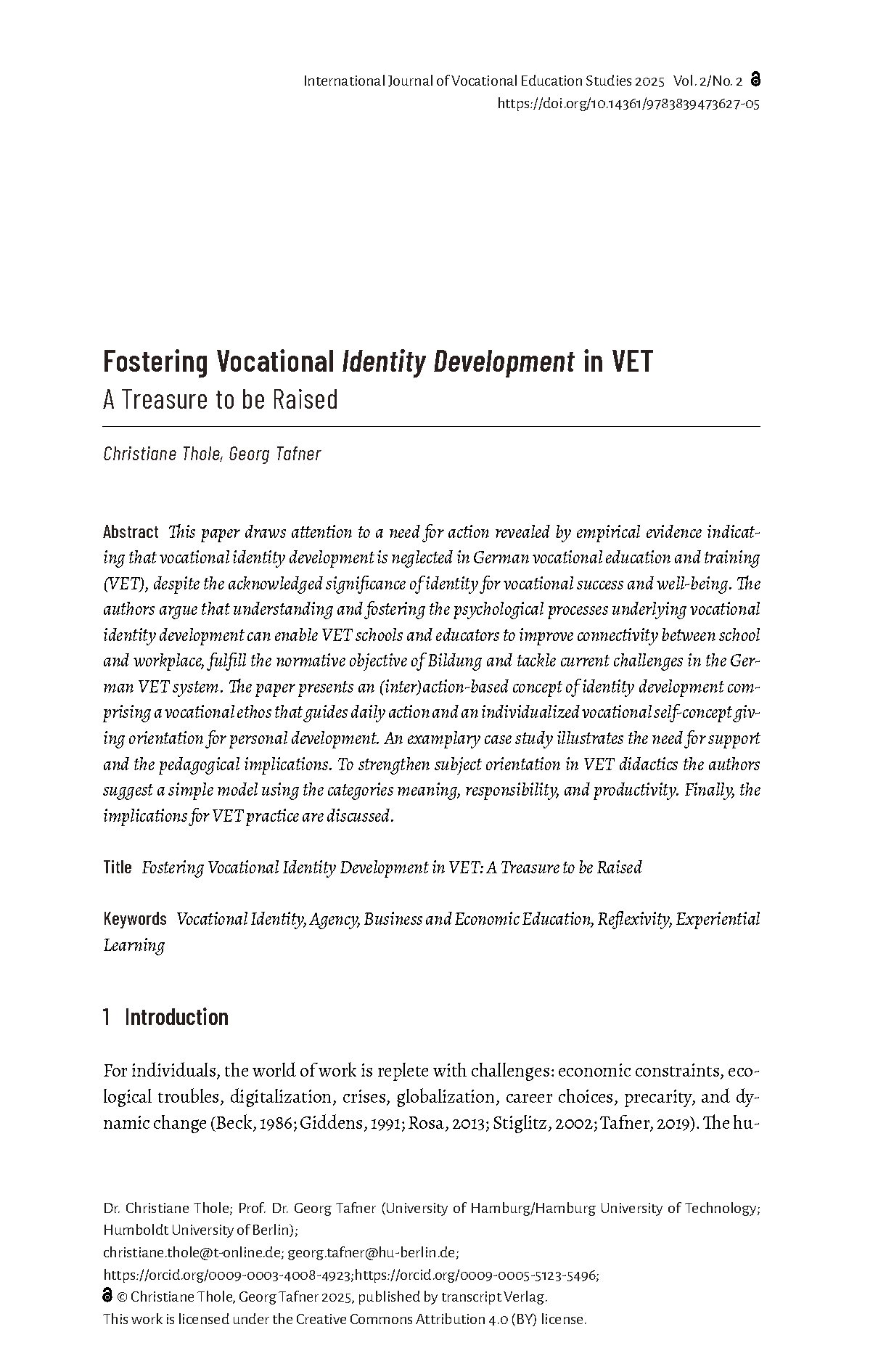Main Article Content

Abstract
This paper draws attention to a need for action revealed by empirical evidence indicating that vocational identity development is neglected in German vocational education and training (VET), despite the acknowledged significance of identity for vocational success and well-being. The authors argue that understanding and fostering the psychological processes underlying vocational identity development can enable VET schools and educators to improve connectivity between school and workplace, fulfill the normative objective of Bildung and tackle current challenges in the German VET system. The paper presents an (inter)action-based concept of identity development comprising a vocational ethos that guides daily action and an individualized vocational self-concept giving orientation for personal development. An examplary case study illustrates the need for support and the pedagogical implications. To strengthen subject orientation in VET didactics the authors suggest a simple model using the categories meaning, responsibility, and productivity. Finally, the implications for VET practice are discussed.
